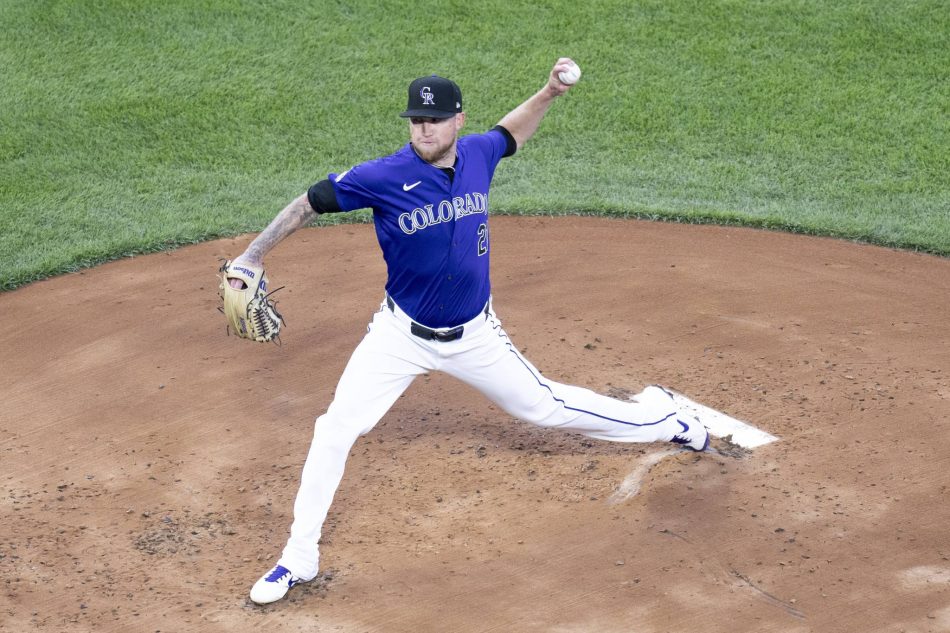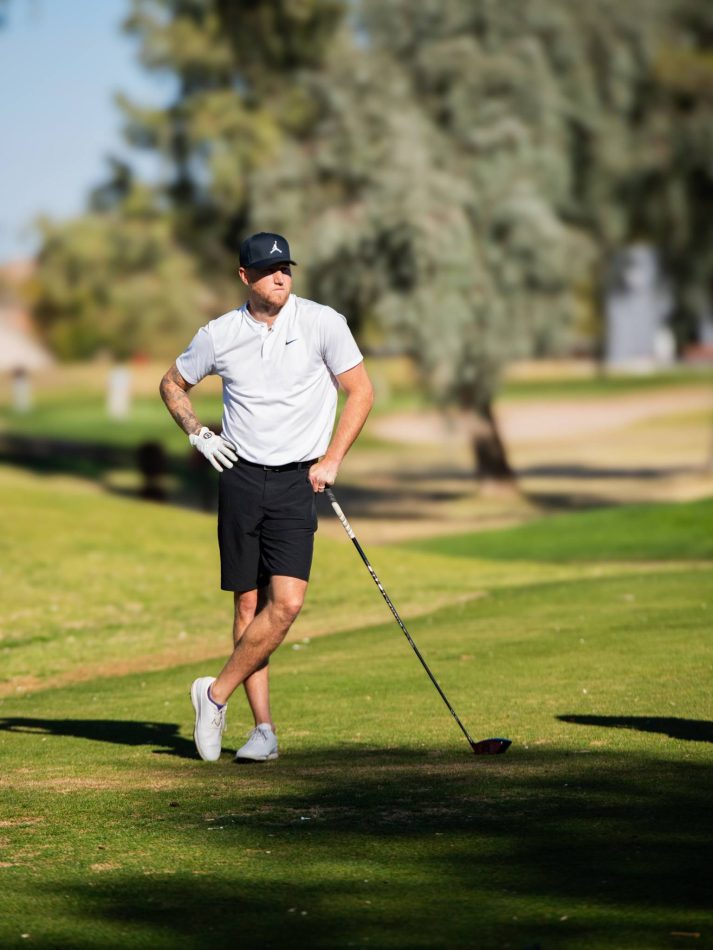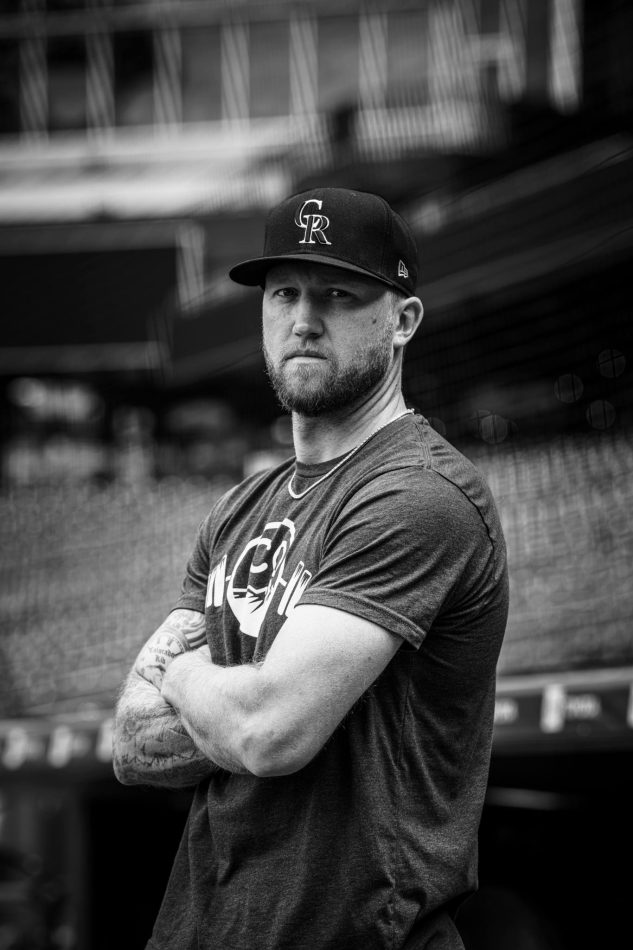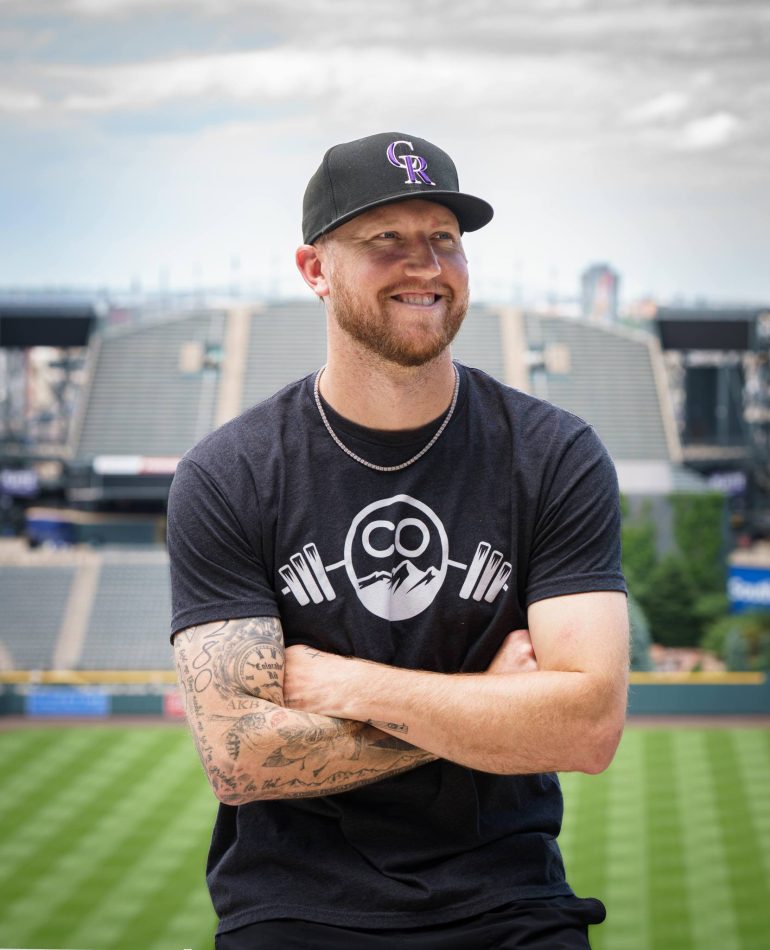CommonGround for $12 off – Colorado AvidGolfer Golf Passport Course of the Week
The Aurora course is aging like a fine wine

By Jim Bebbington
Colorado Rockies starting pitcher Kyle Freeland was amid an injury rehab to his throwing elbow in early June.
His team had just won three series against three of the best teams in Major League Baseball – Philadelphia, Texas and Cleveland. All without him. This would be enough to drive any player up the wall. But Freeland is not any player. At age 31 he is playing for his hometown team. He has already been through a lot of injuries, played eight seasons, and gotten pretty deeply involved in some causes that help him keep baseball struggles in the context of a broader life.
Growing up in east Denver, Freeland became a Thomas Jefferson High School phenom in both golf and baseball. Then he went to the University of Evansville in southern Indiana for college ball, and he thrived.
He has married his college sweetheart, Ashley. They have two beautiful dogs. And he has matured over eight seasons into someone who appreciates what he has and knows that nothing is promised to any of us.
LUCKY MAN
Freeland is sitting in the Rockies dugout while crews ready for a Monday night game against the Cincinnati Reds. He is handed an April 2018 copy of Colorado AvidGolfer magazine. He is on the cover, on the cusp of what is so far his best season. What would he tell this man if he could?
“I’d tell him to continue to enjoy what he’s doing because having an opportunity like I have is absolutely incredible and it’s not to be taken for granted ever,” Freeland said. “Obviously, I wish that circumstances over the past few years have been better for us, but that’s the game. Everything that I’ve been through, I’m grateful for and extremely happy for this kind of opportunity to play for my hometown team.”
The 2018 article focused on the fact that this player, on his way to a 2018 season that would see him finish fourth in Cy Young votes, was also an astonishingly good stick.
The grandson of a Scot who played golf, and a father who played even more, Freeland had little choice but to pick up the game young. He and his brother Colin grew up playing, and Freeland competed in the Colorado high school championships three of his four years. He remains a 300+ driver, carries a scratch handicap, and played in January in the pre-qualifier for the WM Phoenix Open. “I didn’t get to move on to the next round, but I learned a ton and can’t wait to give it another shot,” he wrote on his Instagram post.

But as good as he is at golf, there’s that small matter of his day job. “Obviously (baseball) is No. 1,” he said. “This is my true love. But golf is one of those things that I’m able to disconnect from baseball. You know, we’re playing 162 games. We’re here practicing and working every single day and it really never ends. We’re training all offseason. For pitchers we start picking up baseballs in mid-November. So, baseball kind of starts right there. So, we’re only getting a month off. So, golf is one of those things where I can kind of disconnect from baseball, get my mind off something else.”
He’s also learned that there are some key similarities. The discipline it takes to be fully present – calm and focused – on every golf swing? Yup. That’s every pitch.
“When you’re thinking through shot routines, how you want to play a certain shot, what you’re doing in between shots, stuff like that, you can easily mesh those together with what I do out in the mound with breathing exercises, thought process, stuff like that. So, I work a lot with Darryl Scott, our pitching coach. He golfs a lot and we’re able to connect on that level of golf mentality and base-ball mentality and putting them together, using that creativity of your mind.”
UNLUCKY SEASON
His last few seasons have been an uphill struggle to return to his 2018 greatness. The past two years have been tough physically. He injured his shoulder and oblique, missing a month total.

Nearly every player who goes through injury rehab tells you the same thing – there’s frustration, a little fear, and a gnawing sense that you’re not contributing. For Freeland, add to it that he is playing for his hometown, and knows he is among the highest-paid players on the team.
Coming out of spring training this March, he felt ready. He was the Rockies Opening Day starter. The season was young. Then disaster struck.

He pitched two and one-third innings against the Arizona Diamondbacks and gave up 10 hits, 10 earned runs, and left with an ERA of 38.57. Then a week later he made his second start; it lasted three and one-third innings and he gave up nine hits and seven runs.
Something was clearly wrong.
After his second start, Freeland sat in front of his locker distraught. Teammate Tyler Kinley came by to hug, and they embraced for a long while.
“Kyle worked his butt off this offseason,” Kinsley told MLB.com reporter Tim Stebbins. “He had such a great spring training, such a dominant spring training. These first two starts probably couldn’t go any worse for him in terms of results.” After his third start, against Toronto, he felt pain in his left elbow. Imaging showed no obvious ligament damage, so he was placed on the 15-day injured list with what was considered to be a strained elbow. Manager Bud Black said he thought Freeland would need six weeks to recover.
By the early June series against Cincinnati, he was ready to get back at it. “The elbow’s good,” he said. “I got a live BP (batting practice) tomorrow here and if all goes well, I can hopefully start going out on assignment and pitch to a more competitive environment.”
Nearly every player who goes through injury re-hab tells you the same thing – there’s frustration, a little fear, and a gnawing sense that you’re not contributing. For Freeland, add to it that he is playing for his hometown, and knows he is among the highest-paid players on the team. He is in the middle of a five-year contract that will pay him $15 million this year and $64 million total.
“UCLs (ulnar collateral ligaments) can be kind of tricky, you know, whenever you feel something in there, it’s almost an immediate ‘Alright, we gotta go get an image of it,’” he said. “We gotta figure out what we’re dealing with because if you kind of let it linger around, it can turn into some really bad where you’re missing a year, year and a half of baseball, which nobody wants.”
LEARNING THE GIFT OF GIVING BACK
So his value to the Rockies is veteran leadership and the expectation of a return to pitching greatness. But while they wait, the team is getting even more.
Freeland and his wife Ashley are growing into serious goodwill ambassadors. This spring they donated $3 million to the University of Evansville to help build a new baseball clubhouse – the Freeland clubhouse. He was the Rockies Roberto Clemente Award nominee last year because the Freelands have fully embraced their role of raising money for the Special Olympics of Colorado. There they are, on Instagram, jumping into the Aurora Reservoir during a charity polar plunge. And there is a steady stream of baseballs for auction, signed by the greats from across Major League Baseball.
“Those kids, those athletes, all they care about is having fun and playing the sport that they love and I think that’s so pure and so wholesome to see,” he said. “And their generosity, whether to their teammates or their opponent, is unmatched. And the first time that I saw it was in Seattle at the USA Games for Special Olympics. I was able to go up there, meet with some of the teams from Colorado and some of the people competing from Colorado and speak to them while they play and it was very humbling to see them care only about the things that truly matter in the sport.
“You know, we as professional athletes, we can kind of lose sight of that sometimes with our emotions just because we want to win so bad. And sometimes those emotions get the best of us. But being able to see those kids and the pure joy in their faces of being able to play a sport that they love, I think that fills my heart with joy and is able to take me even further in understanding the greater things in life.”
And then it was game time. But instead of getting ready or warming up, Freeland was scheduled to go back to rehab.
But after eight seasons playing in front of friends, growing his family, and seeing the value of giving back to the community – Freeland said he is ready for whatever comes.
Years from now, when Colorado AvidGolfer again asks for another interview – what does Freeland want to be able to talk about?

“Maybe still playing baseball?” he said. “We’ll see. That’s a long time away. That’d be a very long career. But you know, hopefully, by that time, I’ve got a World Series under my belt with my hometown team and can be very, very happy with the career that I’ve had to that point. Then hopefully just be able to be living a happy full life and playing golf every day.”
We should all be so lucky.
Jim Bebbington is the Director of Content at Colorado AvidGolfer. Contact him at [email protected]
Colorado AvidGolfer Magazine is the state’s leading resource for golf and the lifestyle that surrounds it, publishing eight issues annually and proudly delivering daily content via coloradoavidgolfer.com.
The Aurora course is aging like a fine wine
The Troon Colorado footprint is getting bigger all the time